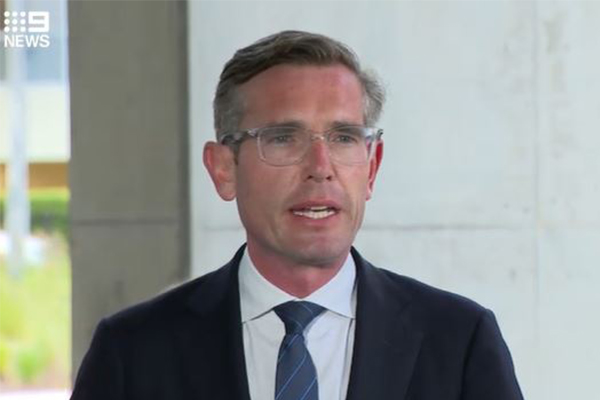Changes to COVID rules in NSW, mandatory booster shots

Premier Dominic Perrottet has announced a reversal of some coronavirus restrictions.
The changes have been announced in response to NSW’s surging Omicron caseload.
Under the new measures, which will be in place from tomorrow to January 27, singing and dancing will be banned in hospitality venues.
This does not extend to weddings or musical classes.
Some elective and non-urgent surgeries will remain on hold.
Major events will largely proceed unless they’re deemed a ‘high risk’ venue.
In industries where COVID-19 vaccinations are mandated, a booster shot will now also be required.
Service NSW will now record positive rapid antigen tests to continue monitoring numbers.
You will be required to report a positive rapid test via your Service NSW app from next week.
Press PLAY below to hear a wrap of the announcement
NSW today recorded 38,625 cases of COVID-19, but this number is believed to be a major underestimate of real numbers.
The number of people in ICU with the virus has risen to 134, while hospitalisations are at 1,738.
Mr Perrottet says modelling is looking positive for the health system’s ability to handle growing case numbers.
“We have modelled three different areas over this period of time as pressure on the health system builds over the next few weeks.
“This is in line with what we did during the Delta outbreak.
“What is encouraging from this model is that even on a worst-case scenario, we have the capacity in our health system right now.”
NSW Health has modeled “worst case” as 6000 people with covid taking up hospital beds by the end of the month. @9NewsAUS @2GB873 pic.twitter.com/lXfqAZ1yae
— Chris O'Keefe (@cokeefe9) January 7, 2022
Image: Nine News















